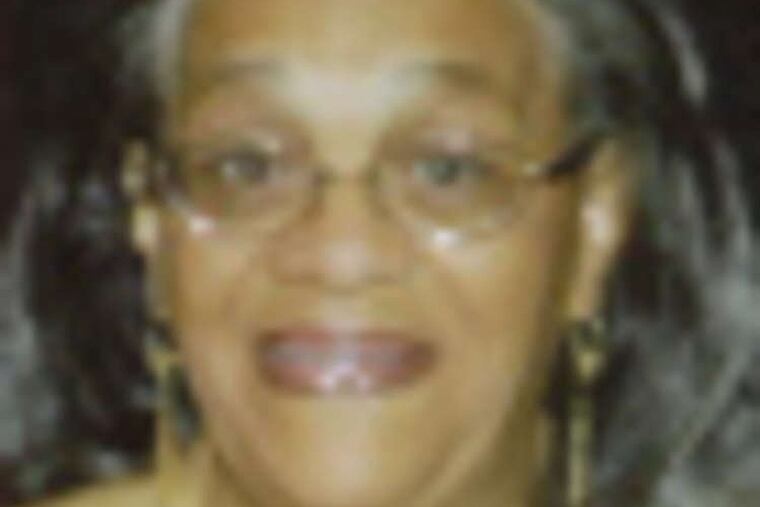Elizabeth A. Floyd, 78, juvenile gang crusader
She and her husband, Melvin Floyd, worked with teens

WHEN TEENAGE gang warfare was raging in Philadelphia in the 1960s and kids were killing each other at an appalling rate, Elizabeth Floyd decided something had to be done.
Her husband, Melvin, was a police officer assigned to Juvenile Aid, and when his wife demanded to know what he was going to do about the gangs, he was a little reluctant to get involved.
After all, he was a cop. Cops catch lawbreakers after the law is broken. Was it his responsibility to do something to prevent the crimes from happening? But Melvin also worked with gang members as part of his duties in Juvenile Aid, so he knew a lot about gang culture.
The murder of a teenage girl hit Elizabeth hard. She was the mother of daughters and her determination that action had to be taken was reinforced.
"Go out and do something about it!" she told her husband.
Melvin soon saw the wisdom of her words, and he went on to become a legendary urban missionary, working to take the sting out of gang rivalries that were leading to wanton murder. He also became a minister and church founder and sought to bring religion to the warring youths.
His wife, the former Elizabeth Anderson, worked side by side with her husband to take programs to young people to keep them off the streets and out of trouble.
She died Sept. 28 of breast cancer. She was 78 and lived in Germantown.
Elizabeth and her husband founded Teen Haven at 19th Street and Susquehanna Avenue, where they installed ping-pong and other games, and gave the youths a touch of religion with Bible passages.
Possibly, the most powerful lesson the Floyds gave their charges was when they linked up with a church in Massachusetts that agreed to a cultural exchange.
Inner-city kids from Philly went to Adams, Mass., for a week in the homes of members of the First Baptist Church.
Their daughter, Esther, was with the first group and, at age 8, learning about the way people lived in all-white Adams, Mass., was a revelation.
"They had pools, they had kitchens as big as my house," she said. "It was life-changing."
Esther said the people of the Massachusetts church told her parents that they had been sending missionaries all over the world, when they realized that there were critical problems in this country that needed help.
At his wife's urging, Melvin quit the police force in 1972 after 13 years, and became a full-time preacher and anti-violence crusader.
He made more than 600 presentations at local schools, founded Neighborhood Crusades, a street-corner ministry, and cruised around in a van with a coffin on top containing the effigy of a dead drug addict.
Melvin and Elizabeth founded Agape Christian Chapel at Greene and Seymour streets, where she worked with young people to keep them off the streets and show them there was a better way to live.
She was involved in such programs as a cooking class for the kids. In order for gang members to attend cooking class, provided by a prominent local chef, there had to be a truce. This was also a qualification for other activities the Floyds organized.
Elizabeth was born in Philadelphia to George and Lois Anderson. She graduated from Germantown High School in 1955. Bill Cosby took her to a prom and she said how nice and what a great dancer he was. When she heard about the accusations against him made by women, she said, "He was not like that!"
After graduating, Elizabeth went to work at the former Woman's Hospital of Philadelphia researching cases of sudden infant death and their causes.
She married Melvin Floyd in 1962.
Asked to describe her mother, Esther Sawyer said one word fit her personality - "bold."
"She wasn't afraid of anything," Esther said. "She could be in your face, but she was extremely compassionate, and very concerned about young lives."
Besides her husband and daughter, Elizabeth is survived by two other daughters, Mary Palmer and Ruth Rush; two sisters, Norma Anderson and Lois Fox; nine grandchildren and five great-grandchildren.
Services: Were yesterday. Burial was at West Laurel Hill Cemetery, Bala Cynwyd.